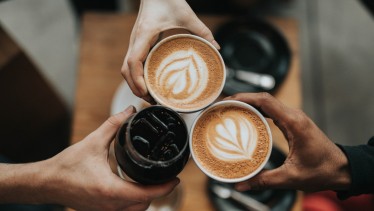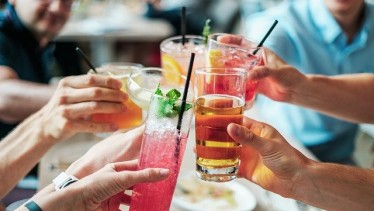Studies reportedly found that chimpanzees would prefer to cook if they had the option to, adding to the list of similarities between chimpanzees and humans.
Scientists have found another to add to the list as a recent study of chimpanzees in Guinea has discovered evidence that chimpanzees get inebriated during “drinking sessions” using the fermented sap of palm trees, according to The Huffington Post.
The 17-year-study, which was published in the journal Royal Society Open Science, found that some chimpanzees drank enough alcohol to produce “vile signs of inebriation,” according to BBC News. The research team, which was led by Dr. Kimberly Hockings from Oxford Brookes University and the Center for Research in Anthropology in Portugal, reportedly found that the sap was about 3 percent alcohol by volume.
“Some individuals were estimated to have consumed about 85ml of alcohol, the equivalent to 8.5 UK units [approximately equal to a bottle of wine],” stated Hockings.
“They displayed behavioral signs of inebriation, including falling asleep shortly after drinking. On another occasion after drinking palm wine, one adult male chimpanzee seemed particularly restless. While other chimpanzees were making and settling into their night nests, he spent an additional hour moving from tree to tree in an agitated manner. Again pure speculation, but it’s certainly something we would like to collect further data on in the future.”
The recent findings regarding the chimpanzees inclination to drink is unique because it’s not a result of any human interaction, according to the report. Other cases of chimpanzees or baboons consuming alcohol have been a result of human production or interaction.
The discovery has reportedly explained the “evolutionary story” about humans’ ability to metabolize ethanol. It has also opened the door to research regarding chimpanzees’ social behavior due to alcohol.
“It would be fascinating to investigate the behavior in more detail: do chimps compete over access to the alcohol? Or do those who drank enough to show ‘behavioral signs if inebriation’ have a bit of a slow day in the shade the next morning?,” stated Dr. Catherine Hobaiter from St. Andrews University.
“Even after 60 years of studying chimpanzees, they are constantly surprising us.”



















